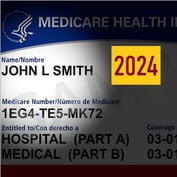WASHINGTON (AP) — Senate leaders of both parties belittled each other’s tax cutting plans Tuesday as Democrats tried advancing legislation that would lower levies for companies that hire new workers, give raises or buy major new equipment this year.
With neither party eager to let the other claim campaign-season victories, the ultimate fate of the roughly $29 billion legislation seemed dubious. Democrats were hoping to begin debating the measure, though it was possible that Republicans, who prefer broader tax changes like some approved by the GOP-led House, would use procedural blockades to quickly derail the measure.
“Their approach is completely different than ours,” said Senate Majority Leader Harry Reid, D-Nev. “Congressional Republicans want to lavish huge across-the-board tax breaks on billionaire hedge fund managers and people like mega-rich celebrities like Donald Trump.”
Senate Minority Leader Mitch McConnell, R-Ky., aimed his fire at President Barack Obama, who prodded Congress on Monday to extend wide-ranging tax cuts — scheduled to expire in January — for most taxpayers but let them expire for households making more than $250,000 annually. Democrats say the rich should contribute to deficit reduction, but Republicans say the higher taxes would affect many business owners and make it harder for them to create jobs.
“The president has a nightmarish economic record, a nightmarish economic record,” McConnell said. “By demanding higher taxes on the few, he’s trying to distract from it.”
Senate Democrats’ legislation would grant tax credits — which are subtracted from a company’s tax bill — equal to 10 percent of the amount its 2012 payroll exceeds the salaries it paid in 2011. The maximum credit would be $500,000, a figure that would disproportionately help smaller businesses.
It would also let companies that buy major new property in 2012, such as machinery, deduct the entire cost of the purchase this year under so-called “bonus depreciation” rules. Currently they can only deduct half the amount.
In a written statement, the White House said it strongly backs the legislation, which it said would provide tax breaks to nearly 2 million companies that hire workers or boost wages. Obama had included tax credits for small businesses in the “to-do” list he proposed for Congress in May.
“By providing targeted tax relief to the businesses that are expanding their workforce and making new investments in capital, S. 2237 will help spur economic growth and job creation and strengthen the recovery,” the statement said, using the measure’s formal bill number.
In an election year in which the slumping economy gives Obama and the Senate’s majority Democrats little to boast about, the proposal lets Democrats take the offensive on the tax issue while asserting they are trying to encourage job creation. The bill was reaching the floor days after the latest gloomy Labor Department report that a scant 80,000 jobs were created last month, leaving the unemployment rate at a rugged 8.2 percent.
“This tax cut is by no means a cure-all, but it could be a difference-maker for small firms on the fence about adding payroll,” said Sen. Chuck Schumer, D-N.Y. “After last month’s sluggish jobs numbers, we may be on the verge of a rare moment of agreement on how to help the economy.”








 July 10, 2012 at 10:22 AM
July 10, 2012 at 10:22 AM










